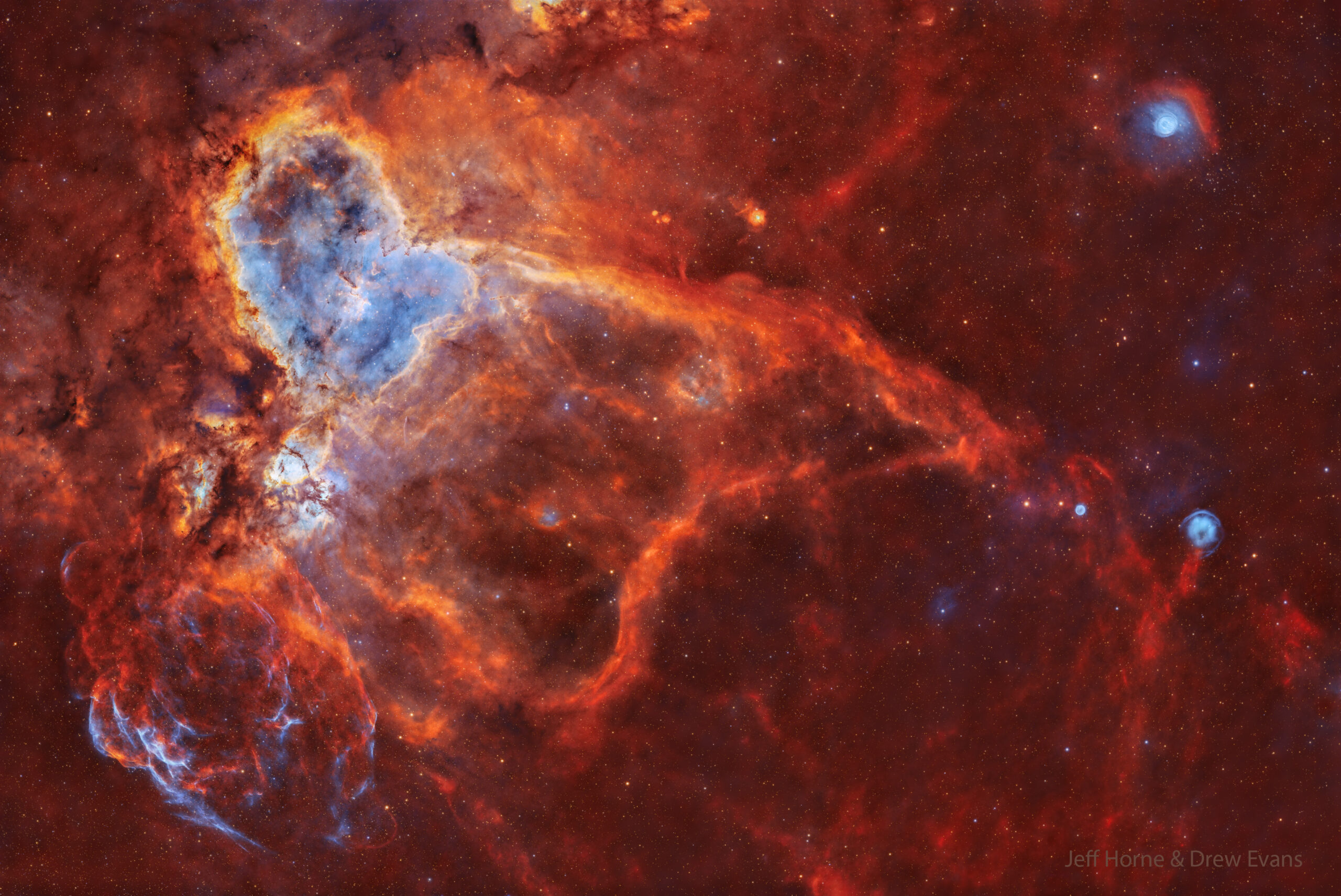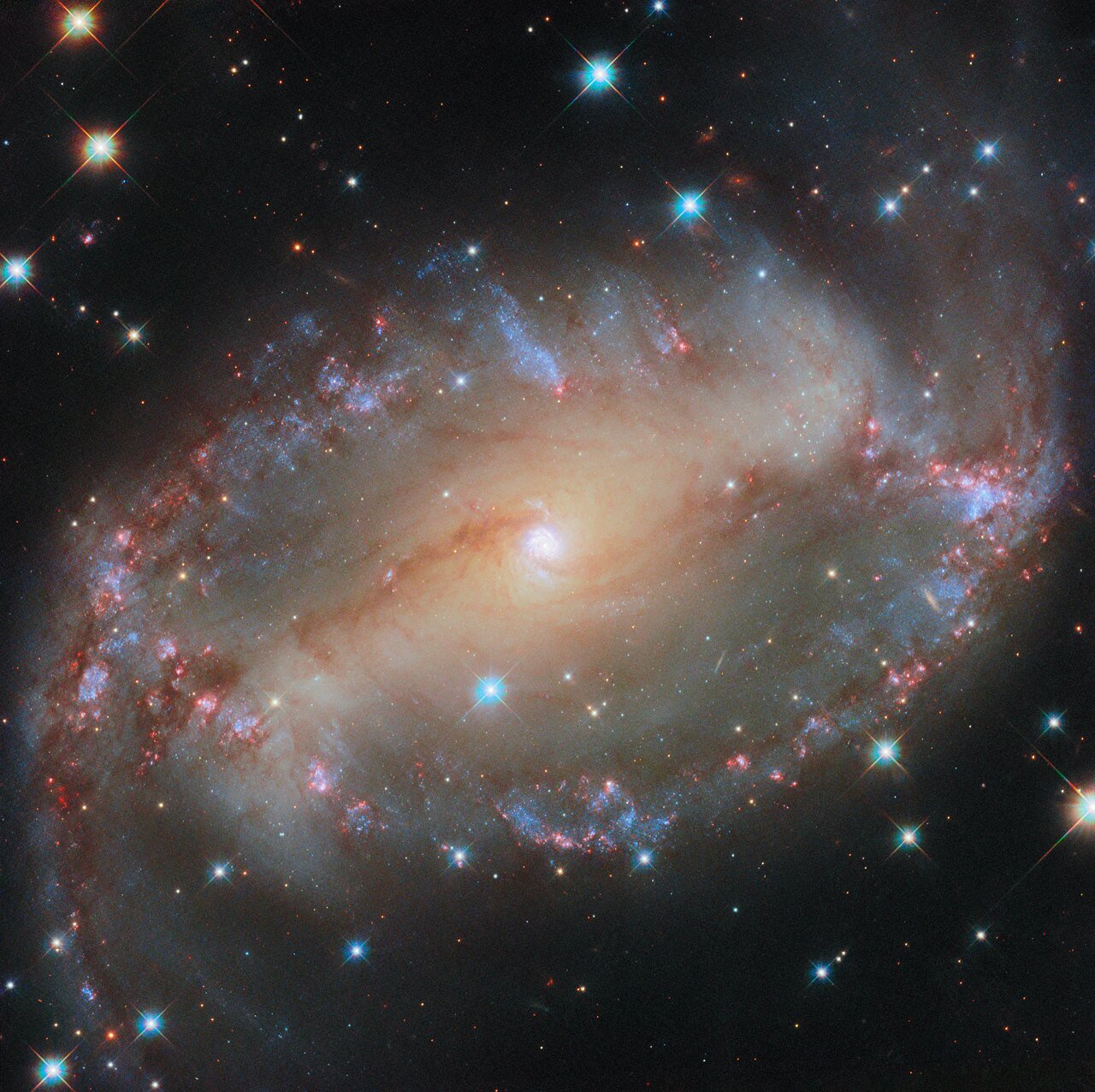Blog
Bryan James “Chas” Chandler (18 December 1938 – 17 July 1996) was an English musician, record producer and manager, best known as the original bassist in The Animals, for which he was inducted into the Rock and Roll Hall of Fame in 1994. He also managed the band Slade, and Jimi Hendrix, about whom he was regularly interviewed until his death in 1996.
more...Ishmael Wadada Leo Smith (born December 18, 1941) is an American trumpeter and composer, working primarily in the field of creative music. He was one of three finalists for the 2013 Pulitzer Prize for Music for Ten Freedom Summers, released on May 22, 2012.
Smith was born in Leland, Mississippi, United States. He started out playing drums, mellophone, and French horn before he settled on the trumpet. He played in various R&B groups and, by 1967, became a member of the AACM and co-founded the Creative Construction Company, a trio with Leroy Jenkins and Anthony Braxton. In 1971, Smith formed his own label, Kabell. He also formed another band, the New Dalta Ahkri, with members including Henry Threadgill, Anthony Davisand Oliver Lake.
more...
Connie Curtis Crayton (December 18, 1914 – June 25, 1985), known as Pee Wee Crayton, was an American R&B and blues guitarist and singer.
Crayton was born in Rockdale, Texas. He began playing guitar seriously after moving to California in 1935, later settling in Oakland. While there, he absorbed the music of T-Bone Walker but developed his own unique approach. His aggressive playing contrasted with his smooth vocal style and was copied by many later blues guitarists.
In 1948, he signed a recording contract with Modern Records. One of his first recordings was the instrumental “Blues After Hours“, which reached number 1 on the Billboard R&B chart late that year. Its B-side, the pop ballad “I’m Still in Love with You”, and the quicker “Texas Hop” are good examples of his work.
more...Harold de Vance Land (December 18, 1928 – July 27, 2001) was an American hard bop and post-boptenor saxophonist. Land developed his hard bop playing with the Max Roach/Clifford Brown band into a personal, modern style, often rivalling Clifford Brown’s instrumental ability with his own inventive and whimsical solos. His tone was strong and emotional, yet hinted at a certain introspective fragility.
Land was born in Houston, Texas, United States and grew up in San Diego, California. He started playing at the age of 16. He made his first recording as the leader of the Harold Land All-Stars, for Savoy Recordsin 1949. In 1954, he joined the Clifford Brown/Max Roach Quintet, with whom he was at the forefront of the hard-bop/bebop movement. The Land family moved from San Diego to Los Angeles, in 1955. There he played with Curtis Counce, led his own groups, and co-led groups with Bobby Hutcherson, Blue Mitchell, and Red Mitchell. From the 1970s onwards, his style showed the influence of John Coltrane.
more...Eddie “Cleanhead” Vinson (born Edward L. Vinson Jr.; December 18, 1917 – July 2, 1988) was an American jump blues, jazz, bebop and R&B alto saxophonist and blues shouter. He was nicknamed “Cleanhead” after an incident in which his hair was accidentally destroyed by lye contained in a hair-straightening product, necessitating shaving it off; enamoured of the look, Vinson maintained a shaved head thereafter. Music critic Robert Christgau has called Vinson “one of the cleanest, and nastiest, blues voices you’ll ever hear.”
Vinson was born in Houston, Texas. He was a member of the horn section in Milton Larkin‘s orchestra, which he joined in the late 1930s. At various times, he sat next to Arnett Cobb, Illinois Jacquet, and Tom Archia, while other members of the band included Cedric Haywood and Wild Bill Davis. After exiting Larkin’s employment in 1941, Vinson picked up a few vocal tricks while on tour with bluesman Big Bill Broonzy. He then moved to New York and joined the Cootie Williams Orchestra from 1942 to 1945, recording such tunes as “Cherry Red”. Vinson struck out on his own in 1945, forming his own large band, signing with Mercury Records, and enjoying a double-sided hit in 1947 with his R&B chart-topper “Old Maid Boogie”, and the song that would prove to be his signature number, “Kidney Stew Blues”.
more...
First, the large emission nebula on the upper left, catalogued as IC 1805, looks somewhat like a human heart. The nebula glows brightly in red light emitted by its most prominent element, hydrogen, but this long-exposure image was also blended with light emitted by sulfur (yellow) and oxygen (blue). In the center of the Heart Nebula are young stars from the open star cluster Melotte 15 that are eroding away several picturesque dust pillars with their atom-exciting energetic light and winds. The Heart Nebula is located about 7,500 light yearsaway toward the constellation of Cassiopeia. This wide field image shows much more, though, including the Fishhead Nebula just below the Heart, a supernova remnant on the lower left, and three planetary nebulas on the image right. Taken over 57 nights, this image is so deep, though, that it clearly shows fainter long and complex filaments.

Carlton Barrett (17 December 1950 – 17 April 1987) was a Jamaican musician best known for being the long-time drummer for Bob Marley & The Wailers. Recognized for his innovative style, which featured a highly syncopated, broken triplet pattern on the hi-hat, and for his dazzling drum introductions, Barrett’s prolific recordings with Marley have been internationally celebrated. He is credited with popularising the One Drop rhythm.
Carlton Barrett was born in Kingston, Jamaica, in 1950, the second son of Wilfred and Violet Barrett. As a teenager, he built his first set of drums out of empty paint cans he found on the street. Along with his contemporaries, drummers Sly Dunbar, Leroy “Horsemouth” Wallace, Style Scott and Carlton “Santa” Davis, Barrett was heavily influenced by Lloyd Knibb of The Skatalites.
In the 1960s, Barrett began performing with his brother Aston “Family Man” Barrett, under the names The Soul Mates, The Rhythm Force and eventually The Hippy Boys, a line-up that featured Max Romeo on vocals, Leroy Brown, Delano Stewart, Glen Adams and Alva Lewis. In 1969, the brothers joined The Wailers (later Known as Bob Marley and The Wailers). During his years with Marley, Barrett continued to record for many of Jamaica’s most well known artists and is featured on solo albums by Bunny Wailer (Blackheart Man), Augustus Pablo (King Tubbys Meets Rockers Uptown) and Peter Tosh (Legalize It and Equal Rights) as well as many others. On 17 April 1987, a gunman shot and killed Barrett outside his home at 12 Bridgemount Park Avenue in Kingston, Jamaica. He was 36.
more...Edward James Kendrick (December 17, 1939 – October 5, 1992), better known as Eddie Kendricks, was an American tenor singer and songwriter. Noted for his distinctive falsetto singing style, Kendricks co-founded the Motown singing group the Temptations, and was one of their lead singers from 1960 until 1971. He was the lead voice on such famous songs as “The Way You Do the Things You Do“, “Get Ready“, and “Just My Imagination (Running Away with Me)“. As a solo artist, Kendricks recorded several hits of his own during the 1970s including the number-one singles “Keep On Truckin’” and “Boogie Down.”
more...Arthur Lanon Neville Jr. (December 17, 1937 – July 22, 2019) was an American singer, songwriter and keyboardist from New Orleans.
Neville was a staple of the New Orleans music scene for over five decades. He was the founder of the funk band The Meters whose musical style set the tone of New Orleans funk, a co-founder of the rock-soul-jazz band The Neville Brothers, and he later formed the spinoff group The Funky Meters. He performed on many recordings by notable artists from New Orleans and elsewhere, including Labelle (on “Lady Marmalade“), Paul McCartney, Lee Dorsey, Robert Palmer, Dr. John and Professor Longhair. He was the recipient of three Grammy awards.
Neville grew up in New Orleans. He was the son of Amelia (Landry) and Arthur Neville Sr. He started on piano and performed with his brothers at an early age. He was influenced by the R&B styles of James Booker, Bill Doggett, Booker T. Jones, Lloyd Glenn and Professor Longhair. In high school he joined and later led The Hawketts. In 1954 the band recorded “Mardi Gras Mambo” with Neville on vocals.The song gained popularity and became a New Orleans carnival anthem. The band toured with Larry Williams. Neville performed regularly in New Orleans, joined the U.S. Navy in 1958, and returned to music in 1962. He released several singles as a lead artist in 1950s and 1960s.
more...Paul Vaughn Butterfield (December 17, 1942 – May 4, 1987) was an American blues harmonica player, singer, and bandleader. After early training as a classical flautist, he developed an interest in blues harmonica. He explored the blues scene in his native Chicago, where he met Muddy Waters and other blues greats, who provided encouragement and opportunities for him to join in jam sessions. He soon began performing with fellow blues enthusiasts Nick Gravenites and Elvin Bishop.
In 1963, he formed the Paul Butterfield Blues Band, which recorded several successful albums and was popular on the late-1960s concert and festival circuit, with performances at the Fillmore West in San Francisco, the Fillmore East in New York City, the Monterey Pop Festival, and Woodstock. The band was known for combining electric Chicago blues with a rock urgency. and for their pioneering jazz fusionperformances and recordings. The band was also among the first racially integrated blues groups. After the breakup of the group in 1971, Butterfield continued to tour and record with the band Paul Butterfield’s Better Days, with his mentor Muddy Waters, and with members of the roots-rock group the Band. While still recording and performing, Butterfield died in 1987 at age 44 of an accidental drug overdose.
Music critics have acknowledged his development of an original approach that places him among the best-known blues harp players. In 2006, he was inducted into the Blues Hall of Fame. Butterfield and the early members of the Paul Butterfield Blues Band were inducted into the Rock and Roll Hall of Fame in 2015. Both panels noted his harmonica skills and his contributions to bringing blues music to a younger and broader audience.
more...James Carroll Booker III (December 17, 1939 – November 8, 1983 NOLA) was an American New Orleans rhythm and blues keyboardist and singer. Flamboyant in personality and style, and possessing extraordinary technical skill on the piano, he was dubbed “the Black Liberace.” His 1960 recording “Gonzo” reached No. 43 on the Billboard magazine record chart and No. 3 in R&B, and he toured internationally in the 1970s. After being mainly a rhythm and blues artist, Booker later fused this genre with jazz and with popular music such as that of the Beatles, playing these in his signature backbeat. He profoundly influenced the New Orleans music scene, where his renditions and originals have been revived and are performed.
more...Featured in this NASA/ESA Hubble Space Telescope Picture of the Week is the spiral galaxy NGC 2566, which sits 76 million light-years away in the constellation Puppis. A prominent bar of stars stretches across the centre of this galaxy, and spiral arms emerge from each end of the bar. Because NGC 2566 appears tilted from our perspective, its disc takes on an almond shape, giving the galaxy the appearance of a cosmic eye.
As NGC 2566 gazes at us, astronomers gaze right back, using Hubble to survey the galaxy’s star clusters and star-forming regions. The Hubble data are especially valuable for studying stars that are just a few million years old; these stars are bright at the ultraviolet and visible wavelengths to which Hubble is sensitive. Using these data, researchers will measure the ages of NGC 2566’s stars, helping to piece together the timeline of the galaxy’s star formation and the exchange of gas between star-forming clouds and stars themselves.
Several other astronomical observatories have examined NGC 2566, including the NASA/ESA/CSA James Webb Space Telescope. The Webb data complement this Hubble image, adding a view of NGC 2566’s warm, glowing dust to Hubble’s stellar portrait. At the long-wavelength end of the electromagnetic spectrum, NGC 2566 has also been observed by the Atacama Large Millimeter/submillimeter Array (ALMA). ALMA is a network of 66 radio telescopes that work together as one to capture detailed images of the clouds of gas in which stars form. Together, Hubble, Webb and ALMA provide an overview of the formation, lives and deaths of stars in galaxies across the Universe.
[Image Description: An oval-shaped spiral galaxy. Its core is a compact, glowing blue spot. A bright bar of light, lined with dark reddish dust, extends horizontally to the edge of the disc. A spiral arm emerges from each end of the bar and follows the edge of the disc, lined with blue and red glowing patches of stars, to the opposite end and a little off the galaxy. Blue stars are scattered between us and the galaxy.]

James Joshua Whiting (born December 16, 1949 NY,NY), known professionally as Sugar Blue, is an American blues harmonica player. He is best known for playing on the 1978 Rolling Stones album Some Girls, and well as his partnership with blues guitarist Louisiana Red.
The Chicago Tribune said, “The sound of Sugar Blue’s harmonica could pierce any night…it’s the sound of a musician who transcends the supposed limitations of his instrument.”
Whiting was born in New York City in 1949. In the mid-1970s, Whiting played as a session musician on Johnny Shines‘s Too Wet to Plow (1975) and with Roosevelt Sykes. While in the company of the latter, he met Louisiana Red, and the two toured and recorded in 1978.
Taking advice from Memphis Slim, in the late 1970s Whiting traveled to Paris, France. According to Ronnie Wood, Whiting was found by Mick Jagger busking on the city streets. This led to him playing on several of the tracks on The Rolling Stones’ Some Girls and Emotional Rescue albums: “Some Girls“, “Send It to Me“, “Down in the Hole” and “Miss You“.
more...
Robben Lee Ford (born December 16, 1951 Woodlake, CA) is an American blues, jazz, and rock guitarist. He was a member of the L.A. Express and Yellowjackets and has collaborated with Miles Davis, Joni Mitchell, George Harrison, Larry Carlton, Rick Springfield, Little Feat, and Kiss. He was named one of the “100 Greatest Guitarists of the 20th Century” by Musician magazine. At age 18, Ford’s band was hired to play with Charlie Musselwhite, and recorded two albums The Charles Ford Band and Discovering the Blues. He recorded two albums with Jimmy Witherspoon called Live and Spoonful. In the 1970s, Ford joined the jazz fusion band, L.A. Express, led by saxophonist Tom Scott. In 1974, the band supported George Harrison on his American tour and played on the Joni Mitchell albums The Hissing of Summer Lawns and Miles of Aisles.
more...More Posts
- Joe Chambers Day
- Clifton Chenier Day
- Johnny Smith Day
- World Music with Haig Yazdjian
- Daily Roots with Peter Tosh
- Your Community Band 6-24-18 2pm
- The Cosmos with NGC 7098
- Jeff Beck Day
- Lester Williams Day
- Terry Riley Day
- World Music with George Abdo
- Daily Roots with Damian Marley and Nas
- Geoffrey Oryema Ugandan musician Passes
- The Cosmos with IC 2631
- George Russell Day
- Milt Hinton Day
- World Music with Mustapha Tettey Addy
- Daily Roots with Turbulence
- The Cosmos with NGC 4565
- Kris Kristofferson Day
